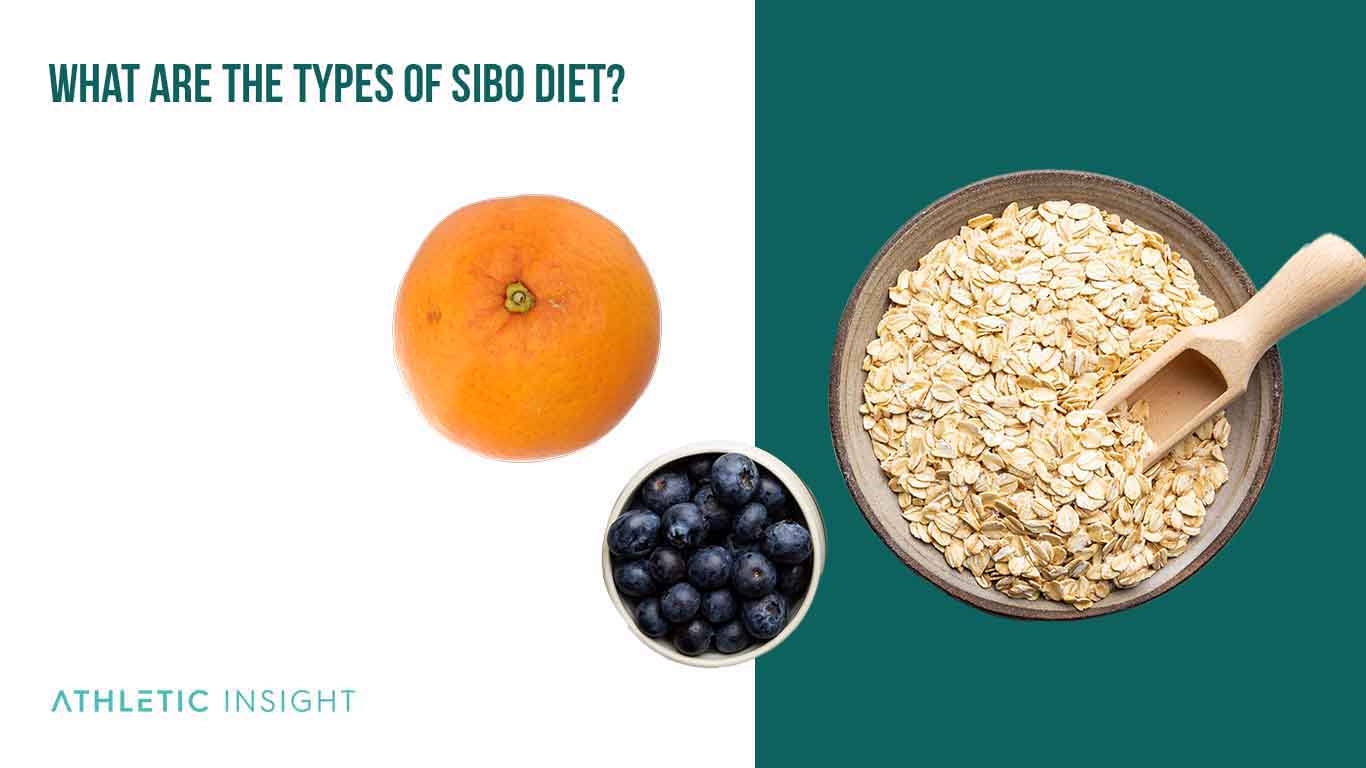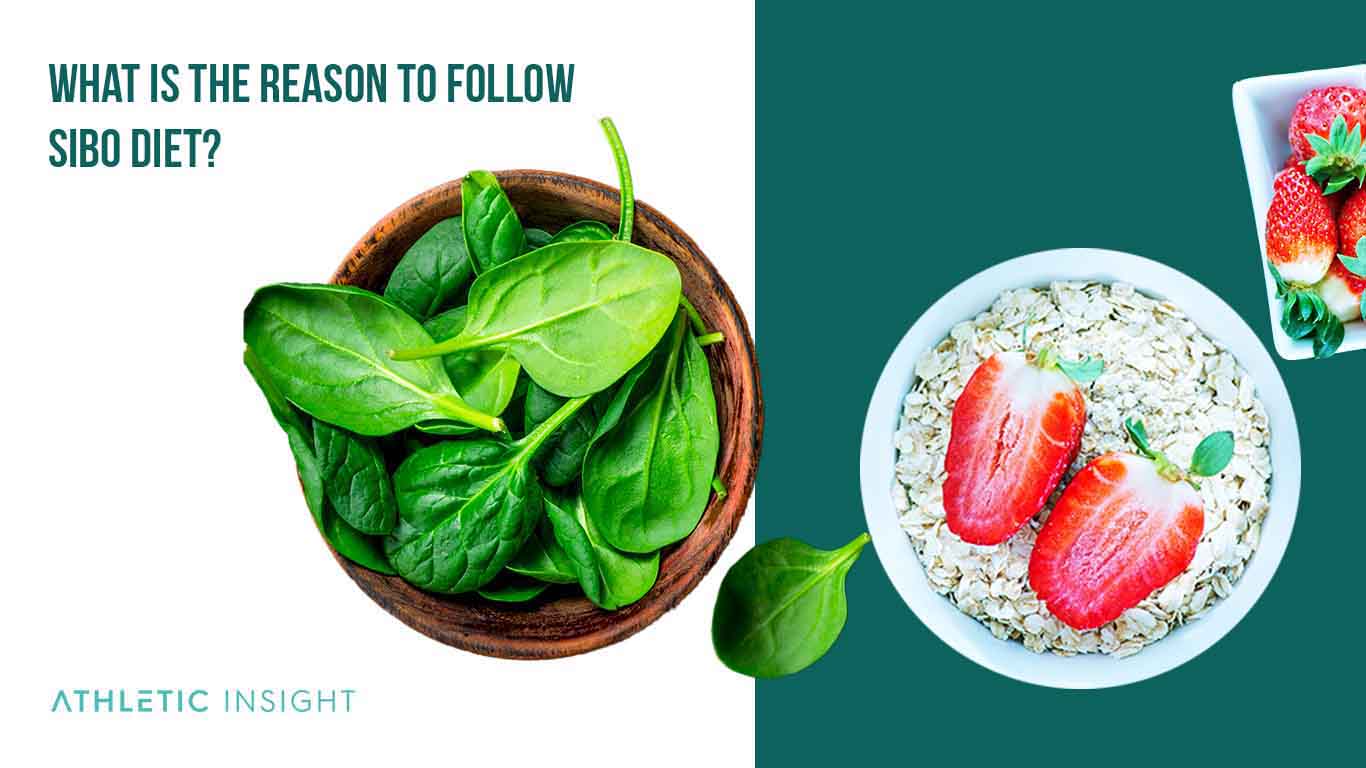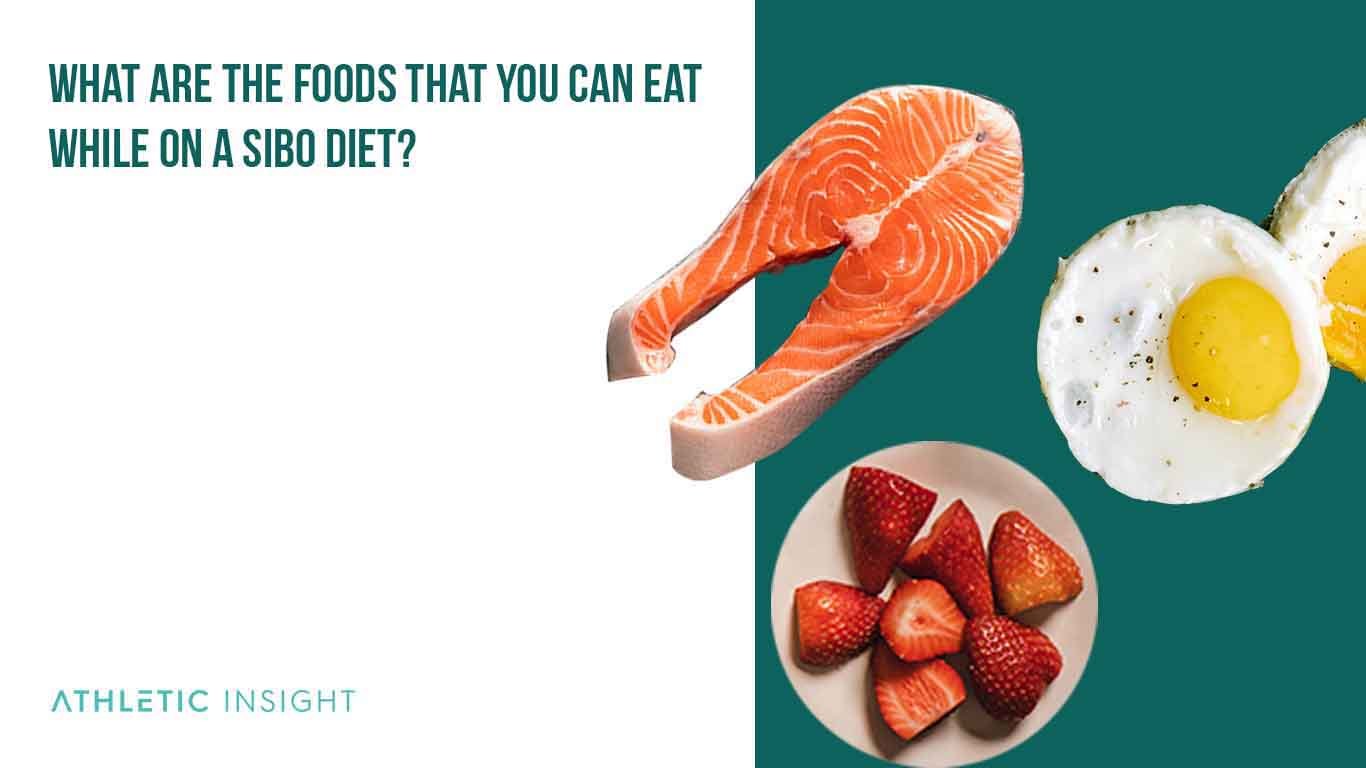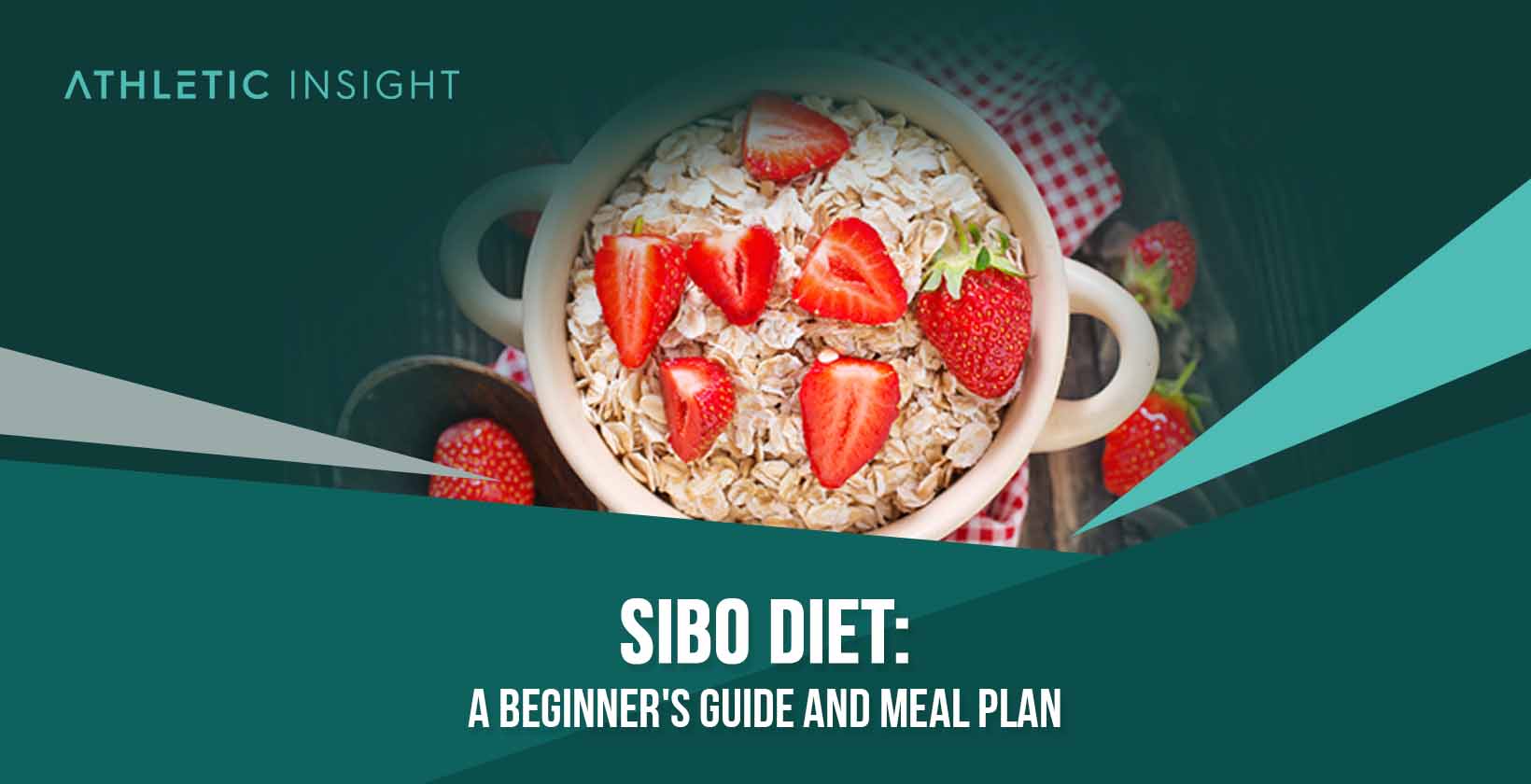Small Intestinal Bacterial Overgrowth (SIBO) is a digestive condition that occurs when there is an overgrowth of bacteria in the upper part of the small intestine. A SIBO diet aims to eliminate or control bacterial overgrowth in the small intestine.
A SIBO diet is important because it helps to reduce symptoms of this digestive condition. A SIBO diet works by restricting certain foods that doctors believe can cause bacterial overgrowth.
On the SIBO diet, you’ll undergo three separate phases; elimination, reintroduction and maintenance. As a result of following this protocol, benefits such as the reduction of fluid and gas in the intestines will result.
The best diets for SIBO are similar to those for IBS, but it depends on the results of your SIBO test. A few popular SIBO diets include the Dr. Allison Siebecker SIBO Diet and the Physicians Elemental Diet.
What Is the SIBO DIET?
The SIBO diet is a health protocol aimed at helping reduce symptoms of digestive conditions due to an overgrowth of bacteria in the small intestines. This diet program focuses on getting rid of carbohydrates, dairy and gluten which can ferment. These foods accelerate and lead to the development of Small Intestinal Bacterial Overgrowth.
How Does the SIBO Diet Work?
The SIBO diet works by restricting the amount of fermentable food on which the bacteria in your small intestine can feed. The organ that the SIBO diet targets is your small intestine and smaller meals of less fermentable food prevent food from “sitting” in your gut.
When you first begin a SIBO diet, your body will often have an initial reaction, as with any significant diet changes. Those using the elemental SIBO diet may experience a more intense reaction because of how extreme the diet is, but it depends on which variation of SIBO you are following.
What Are the Types of SIBO Diets?
There are several SIBO diets you can try to improve symptoms such as Low FODMAP diet, Cedars-Sinai diet, Gut and Psychology Syndrome diet, and Elemental diet. These diets are similar in that they limit the starches, grains, and sugars you will eat.

- Low FODMAP Diet (LFD)
- Cedars-Sinai Diet (C-SD)
- Gut And Psychology Syndrome Diet (Gaps diet)
- Elemental diet
The Low FODMAP diet is very similar to Dr. Alison Siebecker’s variation of the SIBO diet, and is traditionally used to treat IBS. On the other hand, the Cedars-Sinai diet is less restrictive than the Elemental diet.
Why Should Someone Follow a SIBO Diet?
If you suffer from digestion issues, you should consider following the SIBO diet. It may be time to follow a SIBO diet if your symptoms have not improved with other treatments, or if your symptoms are getting worse over time.

Some common symptoms of SIBO are nausea, diarrhea/constipation, gas/bloating, distention of the abdomen, and weight loss. While these are common digestive symptoms, with SIBO they are persistent and can lead to long-term complications.
While it is not fully understood what causes SIBO, slowed motility is a common suspected cause, along with decreased acid production and damage to the lining of the intestine.
What Are the Health Benefits of a SIBO Diet?
The SIBO diet can reduce gas, bloating, and discomfort, which contributes to the overall improvement of digestion. Another health benefit of the SIBO diet that many people experience is weight loss and improved energy. Since SIBO is a disease that can lead to malnutrition, treating SIBO is essential.
- Improved Digestion
- Weight Loss
- Energy
What Are the Health Risks of a SIBO Diet?
While the SIBO diet can be beneficial, it is important to know the risks of any major change in diet. Some risks of following the SIBO diet improperly are the body going into starvation mode, malnutrition, eating disorders, and anxiety.
- Starvation mode
- Malnutrition
- Disordered eating
- Anxiety due to restrictions
It is important to discuss any major health changes with your primary care provider and follow your SIBO diet as instructed. Your SIBO diet plan should suit your specific SIBO diagnosis and should fit reasonably into your life.
What Foods Can You Eat While on a SIBO Diet?
While the SIBO diet is restrictive, you can still eat lots of meat, select vegetables, and some dairy. Some SIBO diet recipes also allow sweeteners like honey or stevia. Most SIBO diets also allow coffee, tea, and other beverages on a limited basis. You can always do a SIBO test diet to see if you experience a reduction in symptoms which will let you know which foods to remove from your diet.

What Foods Should You Avoid While on a SIBO Diet?
The types of food you should avoid on the SIBO diet will vary depending on which exact SIBO diet you follow. In general, you should avoid heavy grains and starches, refined sugars, beans/lentils, processed foods, and excessive dairy products.
- Heavy grains/starches
- Refined sugars
- Beans/lentils
- Heavily processed foods
- Excessive dairy
Any foods which will digest very slowly or are known to feed bacteria should be avoided while on a SIBO diet.
What Are the Best Recipes for the SIBO Diet?
The best recipes for the SIBO low FODMAP diet limit fermentable foods like grains, starches, and sugars and are rich in vegetables and protein. Depending on which diet you use, you may have a large variety of ingredients to cook with, or your ingredient list may be limited. Here are some examples of recipes for a SIBO Diet.
- Bananas With Steel Cut Oatmeal: This hearty, slightly sweet breakfast is easily customizable and SIBO friendly.
- Chicken and Rice Casserole with Peas: This savory, classic casserole can be made SIBO-friendly and Low-FODMAP.
- Homemade New England Clam Chowder: Chowder is one of the few already SIBO friendly foods, as long as dairy is okay for you.
- Tomato and Meatball Soup: This lovely dish can be served any time of year and is super SIBO-diet-friendly with just meat, veggies, and herbs!
- Smoked Salmon Salad: Seafood is SIBO food! Customize this salad with your favorite veggies for a satisfying lunch.
What Is An Example of a SIBO Diet Meal Plan?
The best way to make a SIBO diet meal plan is to have staples with which you build meals around. From there, add your SIBO-approved veggies and condiments of choice. Here is a quick overview of what a sample SIBO diet meal plan might look like.
- Breakfast:
- Eggs + Sausage
- Steel Cut Oatmeal
- Rice with Veggies
- Fruit with Yogurt
- Lunch
- Kale + Cranberry Salad
- Grilled Chicken Wrap
- SIBO-friendly Granola
- Pulled Pork Lettuce Wraps
- Dinner
- Tomato Soup
- Beef Stew
- Curry with Rice
- Loaded Potato Skins
How To Do the SIBO Diet
Beginning and sticking with the SIBO diet means having a plan for your health. While following this diet, you’ll undergo three separate phases; elimination, reintroduction and maintenance.
- Elimination: The first phase of SIBO is elimination which is a restriction from eating any high-FODMAP foods such as dairy, wheat, vegetables, beans.
- Reintroduction: The second phase of SIBO is the reintroduction phase where you slowly add the foods you eliminated back to your diet. During this phase, you will pay close attention to which foods impact your body in a negative way.
- Maintenance: The third phase of the SIBO diet is the maintenance phase. During the maintenance phase you’ll continue to monitor your digestion and pay close attention to any foods that have a negative impact. This phase often includes experimentation.
Some protocols to follow when going through these phases are to eat whole foods instead of refined/processed foods, eating fruit or dried veggies for snacks instead of candy or chips, eating smaller portions of grains and more generous portions of vegetables and protein, working with your doctor to make sure you’re getting all the nutrition you need.
When following a SIBO diet, make sure to consume the same amount of calories you would on your regular diet. A SIBO diet is not meant for long-term consumption, it is meant for a few months while you get SIBO under control. Best practices on the SIBO diet include eating enough, spacing your meals, and staying hydrated.
Who Should Follow The SIBO Diet?
Anyone whose doctor recommends the SIBO diet should follow it as directed. In rare cases, regular treatment doesn’t work and you may need to supplement your SIBO treatment.
What Are the Facts About the SIBO Diet?
- Less Processed: SIBO Diets are made up of whole foods, typically.
- Reduces Gas: Because SIBO Diets are low-fermentable, they cause less gas.
- Temporary: You should not follow a SIBO diet long-term unless your medical practitioner advises.
- Treatment, not Cure: The SIBO diet helps with symptoms but may not cure SIBO.
- Restrictive: Almost all SIBO diets have a long list of “no” foods.
While the SIBO diet can encourage healthy eating habits, it’s important to be sure that this diet will work for you. The first week is difficult and the diet can also cost a little more per month than your usual grocery bill, which deters many from continuing.
Is the SIBO Diet Considered a Healthy Diet?
Yes, when used under medical supervision on a short-term basis, the SIBO diet can be a healthy option. When your digestive system is healthy, the rest of your health can flourish.
Is the SIBO Diet Expensive?
Yes, the SIBO diet can be expensive depending on which SIBO diet you try. This is especially true if you decide to eat whole, organic foods. However, certain ingredients of the SIBO diet can be very affordable. Make sure to communicate clearly with your doctor on how to proceed with a SIBO diet that works for you.



